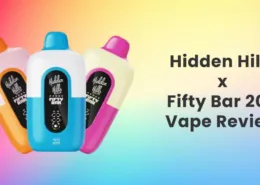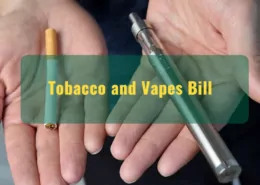British American Tobacco Urges Stricter Vaping Regulations
The new chief executive of British American Tobacco, Tadeu Marroco, recently stated he wants governments to impose tougher regulations on vaping and other alternative tobacco products. This call comes as global controversy grows over youth vaping rates and environmental impacts.
Marroco said BAT is eager to collaborate with regulators to address issues like teen usage and disposable vaping waste. He contends the rapid growth of these products has outpaced oversight, necessitating updated frameworks.
Vaping Crackdowns Emerge
Several countries have already banned e-cigarette sales entirely following health advisor warnings, including India, Thailand, and Argentina. Others are prohibiting flavors deemed to appeal to adolescents.
In the UK, selling vapes to under-18s is illegal. But usage rates among youth continue rising, sparking proposals to tighten restrictions on flavored disposable vapes which some argue overtly target teens.
Flavored Disposables
Disposable vape brands like Elf Bar in China have achieved massive popularity selling brightly colored, fruit-flavored single-use devices. These flavors hold clear attraction for younger palates, researchers say.
BAT itself launched disposable vapes in 2022 but says it avoided cartoonish colors and focused on more mature flavors for adult smokers. All the same, critics remain skeptical of industry self-policing claims.
Balance Risk with Protection
Public health guidance states vaping may aid smoking cessation when properly regulated, but it still poses risks warranting oversight. Crafting balanced frameworks remains contentious.
Marroco contends new regulations should allow vaping’s benefits for migrating adult smokers away from cigarettes while preventing youth adoption and environmental disposal issues. But the specifics of this goal require further debate.
Potential Regulations
Specific regulatory interventions proposed include:
- Curbing marketing, promotion and influencer sponsorships attractive to youth
- Restricting branding elements and visual identity coding as youthful
- Enhancing age verification requirements for all sales channels
- Limiting flavor profiles to those unenticing for adolescent palates
- Mandating eco-friendly recycling and disposal standards
However, vaping trade associations frequently oppose strict advertising and branding limitations as inhibitive. Finding an agreeable balance continues to prove difficult.
Read more: Vaping laws in UK
Manufacturers Versus Startups
One industry argument holds that large, established tobacco manufacturers are not primarily responsible for disposable vapes’ youth appeal. Instead, they pin blame on startups using social media marketing and kid-friendly branding strategies.
But health advocates counter the entire vaping sector, including market leaders, have obligations to proactively self-regulate and reform labeling, packaging, and promotions across the board to discourage underage usage. Reliance on legislation alone is viewed as problematic.
- HHC Vapes: What Are They & Are They Safe? - July 31, 2025
- Cannabis and Vape Shop Workers Rank Happiest in Nation - July 31, 2025
- Richmond, VA, Restricts New Vape & Tobacco Shop Locations - July 31, 2025








